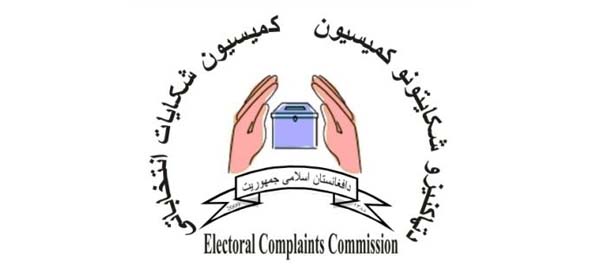KABUL - The Electoral Reform Commission (ERC) on Monday recommended that the National Unity Government consider implementing a number of near-term electoral reforms in the next month, a move that would expedite a process that has, until recently, been marred by gridlock and delays.
According to ERC members, the short term reforms should be pushed ahead through a legislative order by President Ashraf Ghani, given that Parliament is currently on its summer recess. Even if the legislature was in session, however, the ERC says lawmakers would not have the authority to vote on the reforms because their constitutionally mandated terms have already expired.
"If we are not able to go through with the recommendations in the period mentioned, in that case, we will need six months, and the Independent Election Commission will also need the same time period, which will delay the parliamentary elections for another two years," ERC member Sabrina Saqib warned on Monday. "Considering such a requirement, the members of the electoral reform commission unanimously decided to accept more work and refer its recommendation to the government in less than two months so that the timeframe for the parliamentary vote is announced soon," she added.
The ERC was formed earlier this month after multiple delays on account of disagreements between President Ghani and Chief Executive Abdullah Abdullah over its leadership and broader membership. It now seems the commission, which is currently operating out of Abdullah's office, is trying to make up for lost time. Saqib maintained that ERC members plan to work seven days a week so that they can make their reform recommendations as soon as possible.
Meanwhile, some commentators have suggested the ERC's push to expedite the reform process is politically motivated. "If ERC members are influenced by their political leaders, naturally, the members will be facing obstacles ahead," Free and Fair Election Foundation of Afghanistan (FEFA) Executive Director Mohammad Yousaf Rashid told TOLOnews. "But if they make efforts to deal with the process as a national process, and take advantage of the experience and recommendations of other institutions, then the outcomes will be constructive and they will not face challenges," he added.
Civil society groups have emphasized that the ERC's work should be conducted transparently. "To protect the sovereignty of the Electoral Reform Commission, our recommendation is that the door of the relevant commission be kept open for civil society institutions and media to monitor their meetings and the decisions that are made shouldn't be hidden from the people and civil society institutions," activist Humaira Saqib said on Monday.
The ERC officially started work last Wednesday and since then it has conducted four meetings. The commission has split into two committees, with one evaluating the legal framework of the election commissions and the other the structural framework of the election commissions. (Tolonews)

